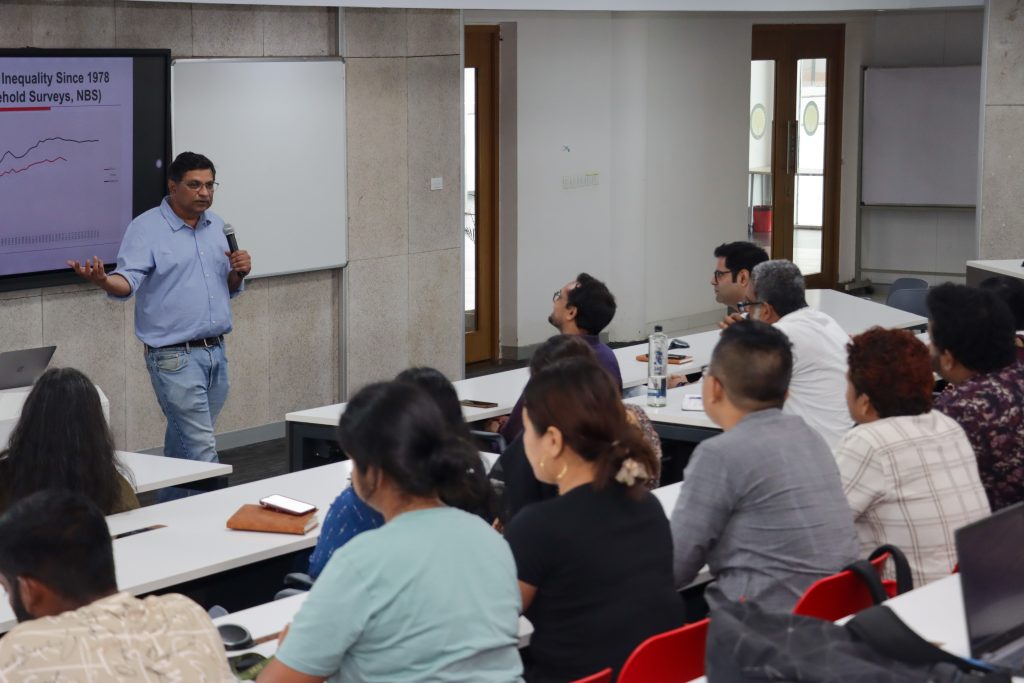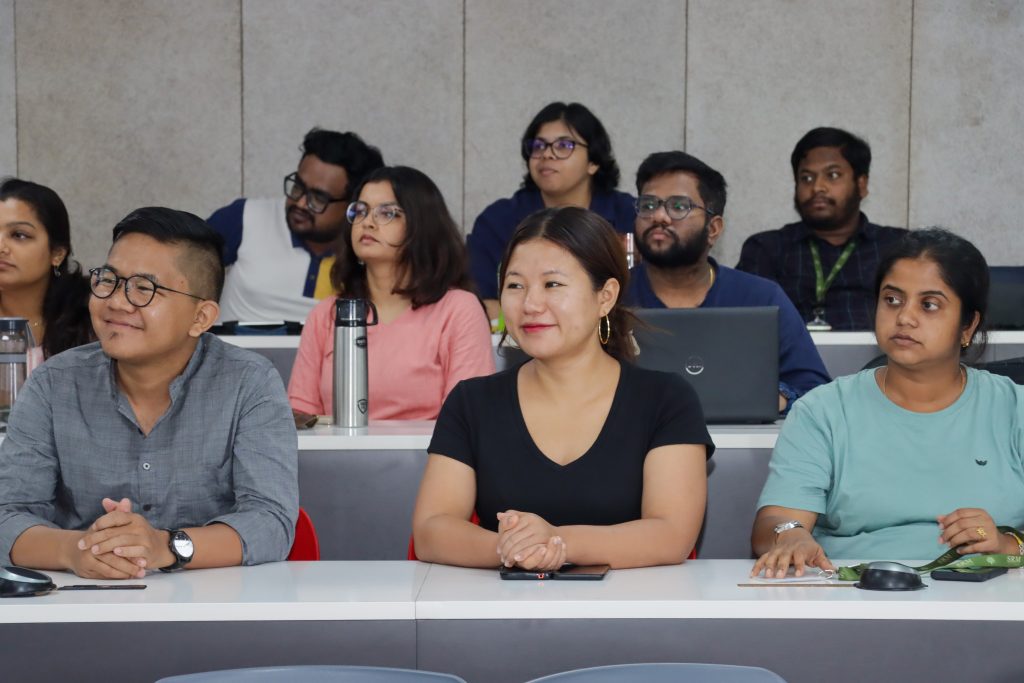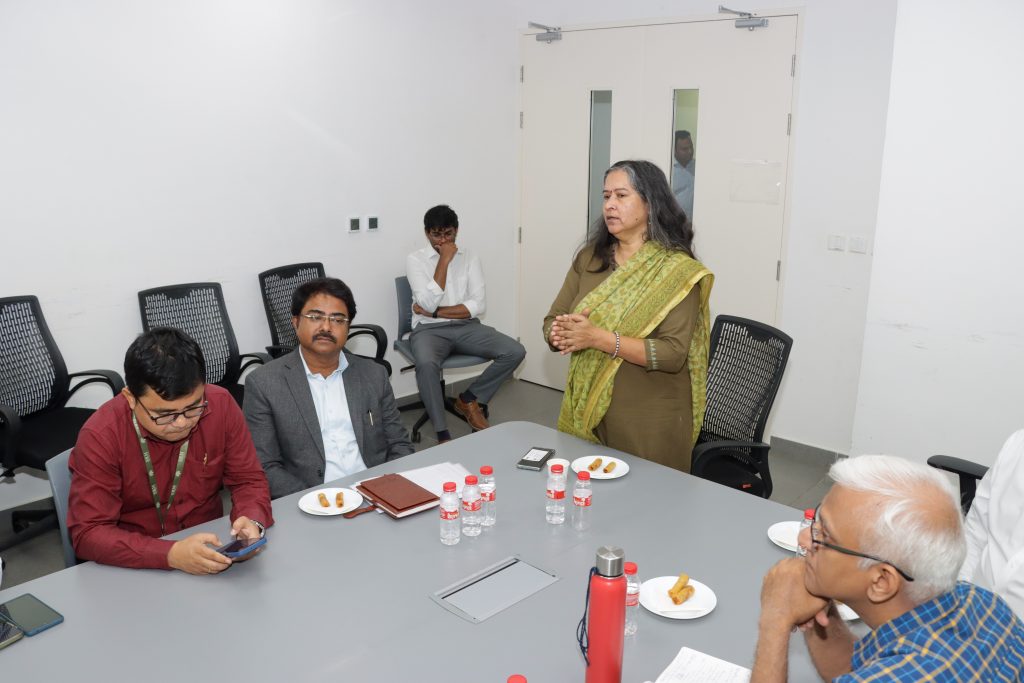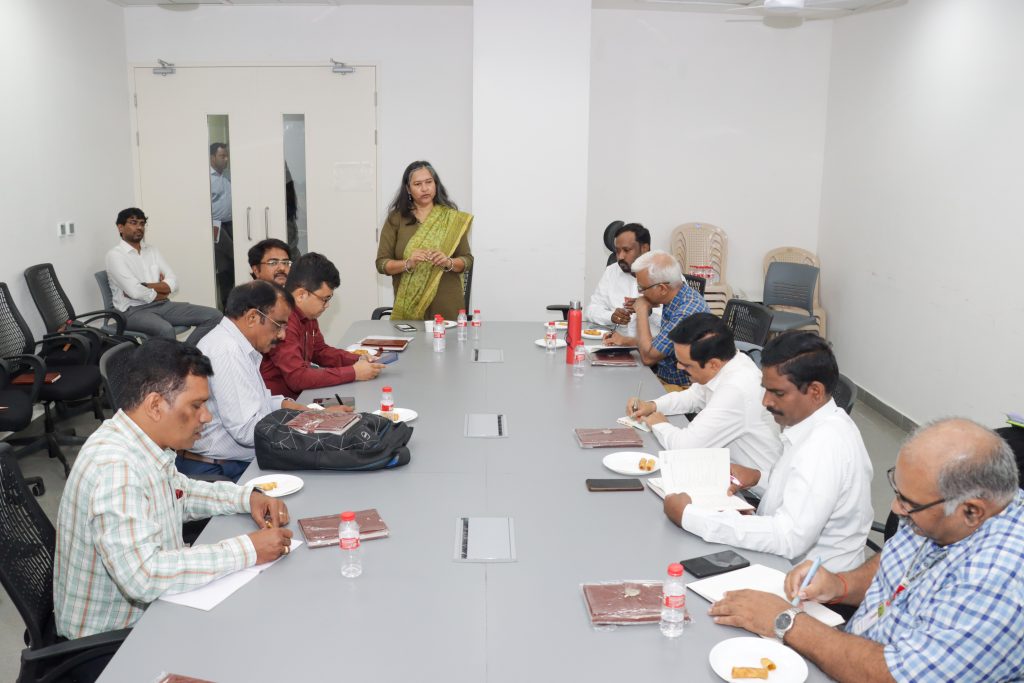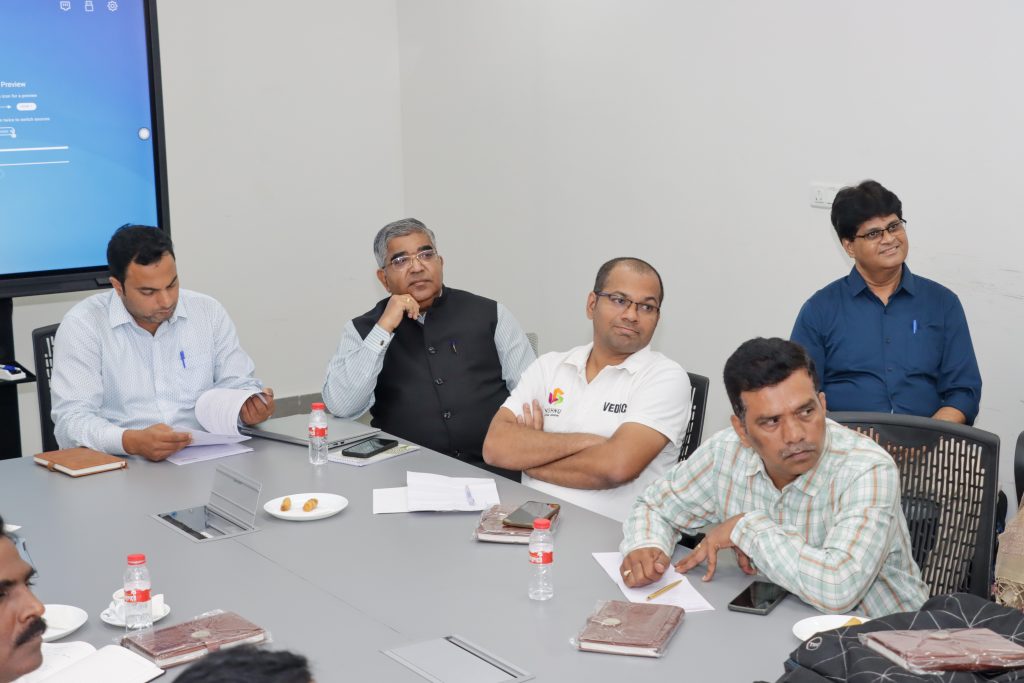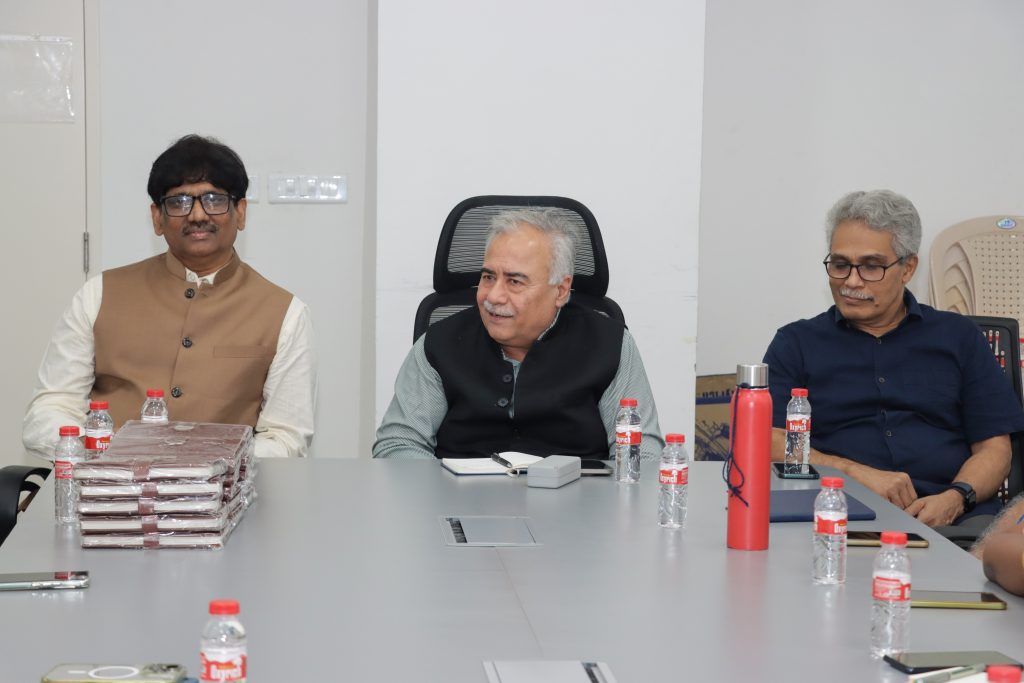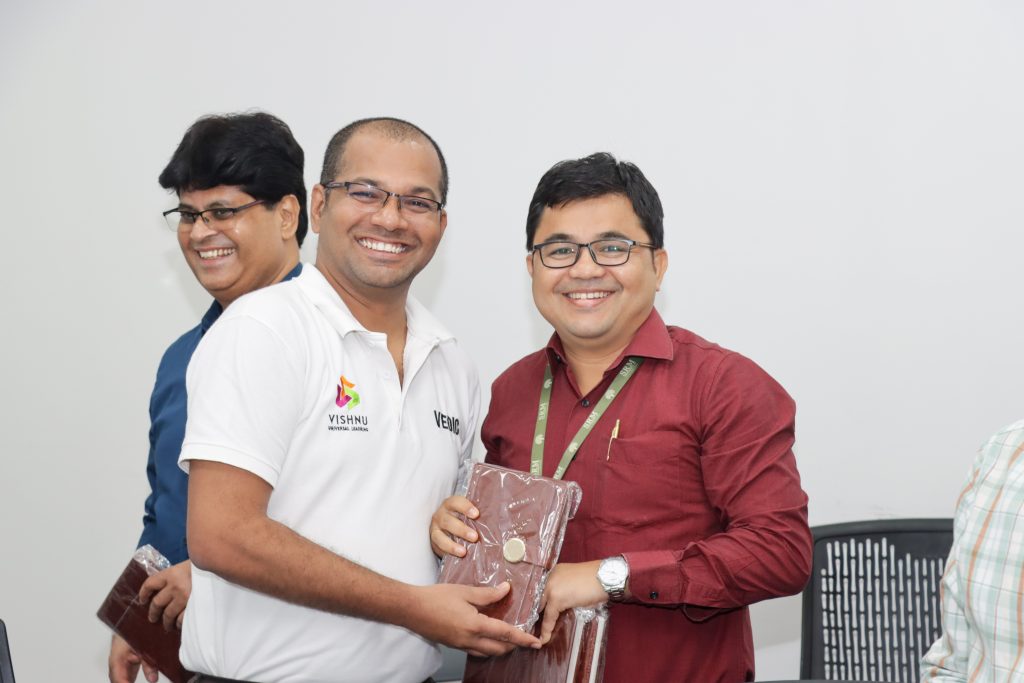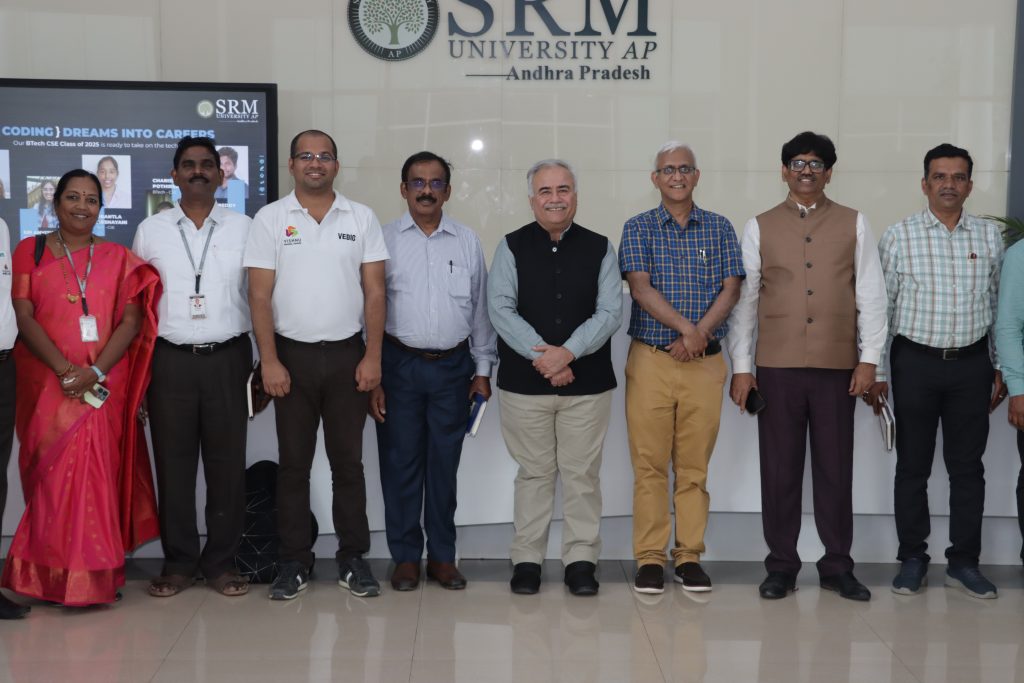- Patent Published for Revolutionary Electrode Material in Clean Hydrogen Production June 19, 2025
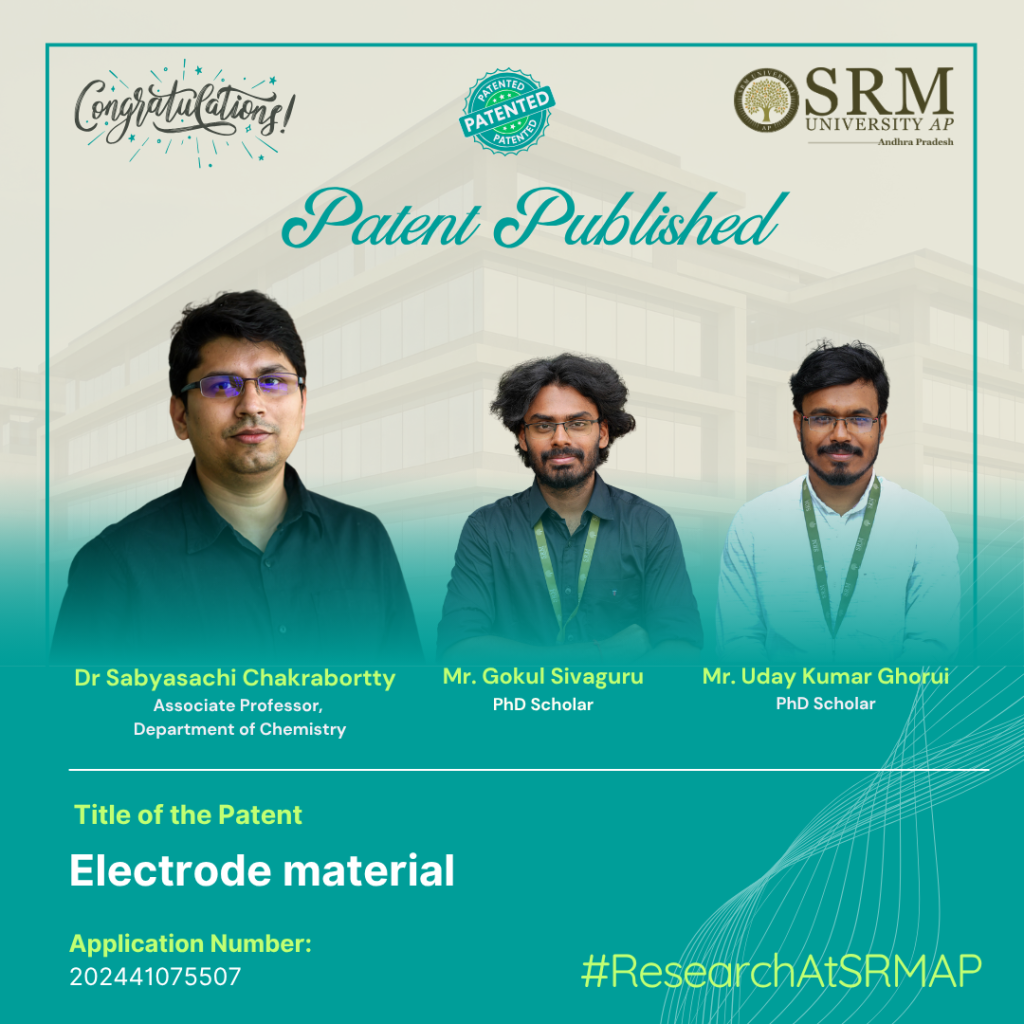
In the growing need for clean energy solutions, Dr Sabyasachi Chakrabortty, Associate Professor, Department of Chemistry, Dr Uday Kumar Ghorui (Post Doctoral Scholar) and Mr Gokul Sivaguru (PhD scholar) have filed and published the invention of “Electrode material” with Application Number: “202441075507” in the Patent Office Journal, on developing a low-cost, eco-friendly electrode material using a simple hydrothermal process. The research team has developed a pioneering Ternary Transition Metal Oxide (TTMO) nanocomposite electrode for the hydrogen evolution reaction (HER). Their work focuses on creating a sustainable alternative to fossil fuel-based hydrogen production methods, which currently generate significant CO₂ emissions.
Abstract
This disclosure focuses on developing a low-cost, earth-abundant Ternary Transition Metal Oxide (TTMO) nanocomposite electrode for efficient, clean hydrogen production, addressing the depletion of fossil fuels and the CO₂ emissions from current methods like methane reforming and coal gasification. Using a simple hydrothermal process, the TTMO electrode demonstrates excellent electrochemical HER performance, with low overpotential and 100-hour stability, despite challenges in cost, infrastructure, and safety for hydrogen energy generation.
Practical Implementation/ Social Impact of the Research
Practical Implementation
- The research develops a cost-effective TTMO nanocomposite electrode using a scalable hydrothermal method
- Enables efficient hydrogen production with low overpotential
- Offers a practical, sustainable alternative to fossil-fuel-based methods
- Achieves 100 hours of stable hydrogen generation while minimizing CO₂ emissions
- Enables efficient hydrogen production with low overpotential
Social Implications
- Addresses the critical need for clean, renewable energy sources
- Provides a sustainable solution for hydrogen production without carbon emissions
- Makes green hydrogen technology more accessible through cost-effective materials
- Contributes to global efforts in reducing dependence on fossil fuels
Future Research Plans
- Optimising the TTMO nanocomposite’s composition and synthesis to boost HER efficiency
- Improving stability for industrial-scale hydrogen production
- Exploring integration into real-world energy systems
- Investigating other earth-abundant materials to advance affordable, green hydrogen technologies
- Mr Yara Srinivas June 18, 2025
- Dr Preeti Kumari June 18, 2025
- “Class and Inequality in China and India” Talk by Prof. Vamsi Vakulabharanam June 18, 2025
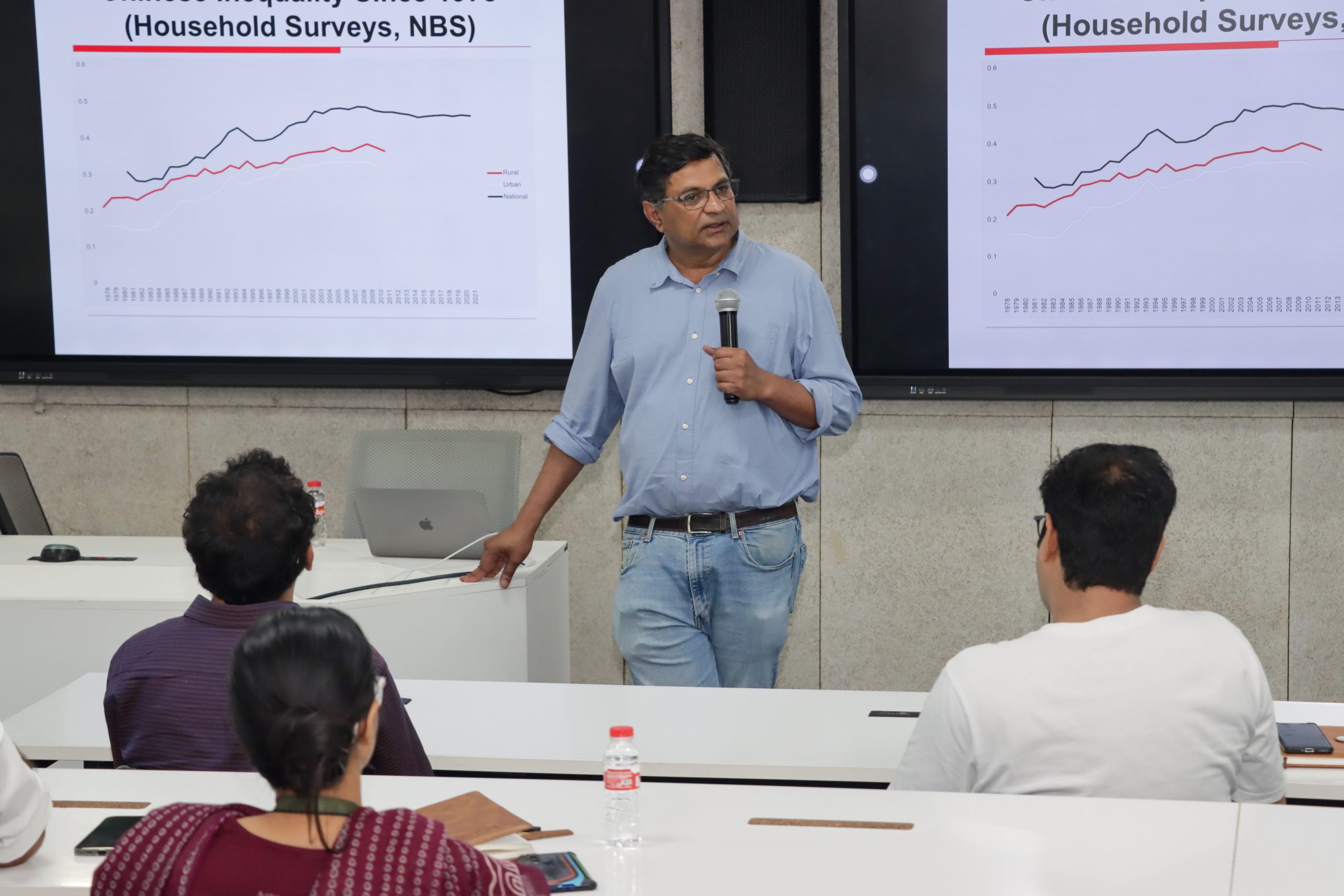 The Department of Economics hosted a talk titled “Class and Inequality in China and India” by Prof. Vamsi Vakulabharanam, Associate Professor of Economics at the University of Massachusetts Amherst on June 17th. Prof. Vakulabharanam, a former faculty member at the University of Hyderabad and City University of New York, has been associated with research institutions such as the Institute for New Economic Thinking (INET) and the India China Institute. He is a renowned scholar in the field of political economy, inequality and development studies with a focus on India, global capitalism and class-caste dynamics.
The Department of Economics hosted a talk titled “Class and Inequality in China and India” by Prof. Vamsi Vakulabharanam, Associate Professor of Economics at the University of Massachusetts Amherst on June 17th. Prof. Vakulabharanam, a former faculty member at the University of Hyderabad and City University of New York, has been associated with research institutions such as the Institute for New Economic Thinking (INET) and the India China Institute. He is a renowned scholar in the field of political economy, inequality and development studies with a focus on India, global capitalism and class-caste dynamics.In his talk, Prof. Vakulabharanam presented key ideas from his recent book Class and Inequality in India (1950–2010), offering a comparative political economy perspective on India and China. His lecture offered critical comparative insights into the evolution of class structures and inequalities in China and India, two of the world’s largest emerging economies.
Drawing on empirical evidence and theoretical perspectives, the speaker examined the socio- economic trajectories of both countries and highlighted the implications of rising disparities for long- term development and social stability. He traced two distinct phases in the post-independence period:1950–1980, marked by low economic growth but a decline in inequality (forming the lower part of a U-shape), and 1980–2010, characterised by rapid growth under neoliberal reforms and policies but a simultaneous rise in inequality.
The lecture highlighted three main contributions of the book:
- A class-based analysis of inequality, especially novel in the context of China.
- An exploration of how India and China have transformed the world economy post-1950, and how global economic dynamics have, in turn, reshaped these countries.
- A theoretical framework for understanding within-country inequality.
Prof. Vakulabharanam also engaged with frameworks such as varieties of capitalism, French regulation theory, and comparative urban inequality (e.g., urban Gini coefficient analysis in Beijing and Delhi), offering a nuanced critique on ideas from thinkers like Thomas Piketty and Simon Kuznets and of global inequality discourse.
Concluding his talk, Prof. Vakulabharanam emphasised, “If China and India genuinely want to add something novel to the world order, they have to break free from the European model and find their own way of addressing inequality, climate change, and technological innovation.”
The session witnessed active participation from faculty members and research scholars from the Easwari School. Followed by a lively Q&A session, engaging participants in discussions around development policy, economic reforms, and the political economy of inequality. This academic event marked a valuable opportunity for the university community to interact with an international expert and gain deeper understanding of comparative development challenges in Asia.
Continue reading → - Uniting Forces, Leveraging Synergy: SRM AP Join Hands with Vishnu Group June 17, 2025
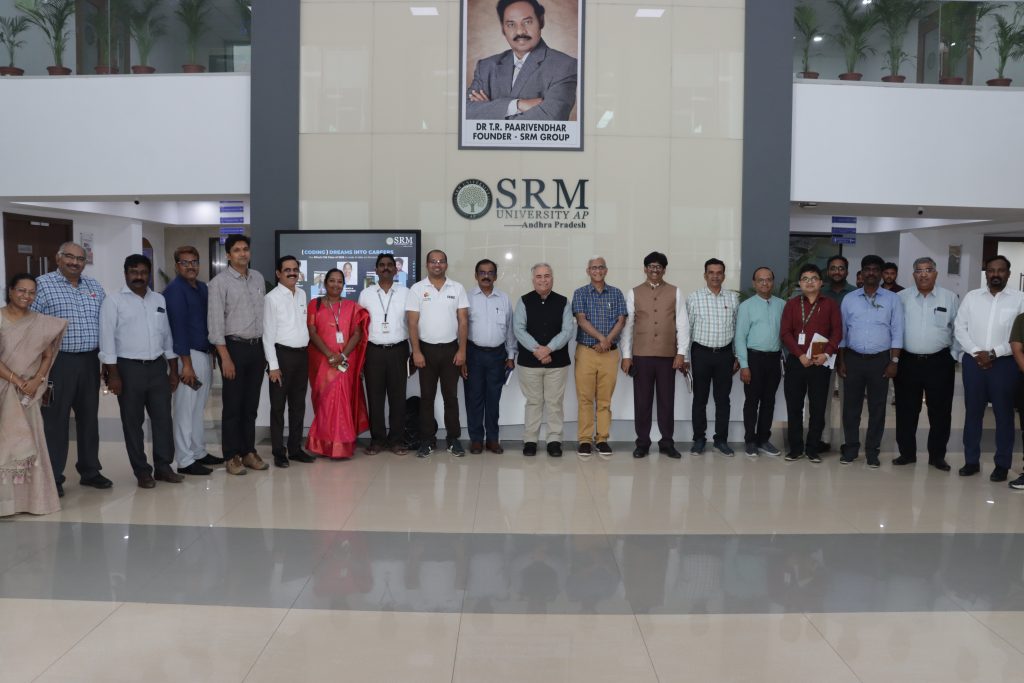
Vishnu Group of Institutions, a prominent name in the educational society in the West Godavari District of Andhra Pradesh visited SRM University-AP, exploring for a collaboration across multiple domains.
The Vishnu Group of Institutions presently comprises nine constituent colleges, serving over 20,000 students across a diverse range of programs, including Engineering, Dental Studies, Pharmacy, BSc, MCA, Polytechnic, and K-12 education. The Group operates with a profound sense of purpose and unwavering commitment, dedicated to fostering engaging learning experiences in the rural regions of Andhra Pradesh and Telangana.
The event saw the presence of SRM University-AP‘s Vice Chancellor, Prof. Manoj K Arora; Pro-Vice Chancellor, Prof. Ch Satish Kumar; Dean-SEAS, Prof. C V Tomy; Dean -Research, Prof. Ranjit Thapa, among other members of the faculty and Staff, alongside the staff and faculty from Vishnu Group of Institutions.
On the occasion, Vice Chancellor Prof. Manoj K Arora outlined the university’s growth trajectory, stating that the faculty has been a key factor contributing to the varsity’s success. Our faculty has been hired from some of the most-premier institutions of the country and world, fostering a multi-cultural nucleus of learning. “We, as a university, place a lot of emphasis on faculty and their training.” He also stressed the need to advocate for knowledge dissemination.
Prof. Arora highlighted the incredible support that the SRM University Management exerts towards fortifying the research acumen, and the SEED Grant is one such instance. Speaking of the Research prowess of the varsity, Prof. Arora also stated that the research at the varsity is predominantly interdisciplinary in nature. He echoed the words of the Pro-Chancellor, who believes – “Think Big, Do Big” thereby emphasising the importance of learning over teaching.
Prof. Arora also mentioned the landmark collaboration with Carnegie Mellon University. “Our ambitions are high; we will continue to grow,” stated the Vice Chancellor. Speaking on the occasion, the Pro-Vice-Chancellor, Prof. Ch Satish Kumar, added, “At SRM University-AP, we don’t just encourage the faculty but also the students to focus on Research.” He also quoted the NEP, stating the emphasis the policy places on student-based research at all levels of learning.
Prof. Satish cited the old education system, which was based on the concepts of ‘Bhay’ and ‘Bhakti’ (fear and devotion) towards teachers. He stated, “today, the education system cannot run on this ideology. The present system requires us to mentor the students, eliminating the concepts of ‘Bhay’ (fear towards teachers) Mentoring is the key to our system of teaching and learning here at SRM University-AP.”
The event also witnessed Deans and Directors briefing the delegation from Vishnu Group of Institutions on the functioning of the various Departments and Directorates at SRM AP.
Continue reading →


